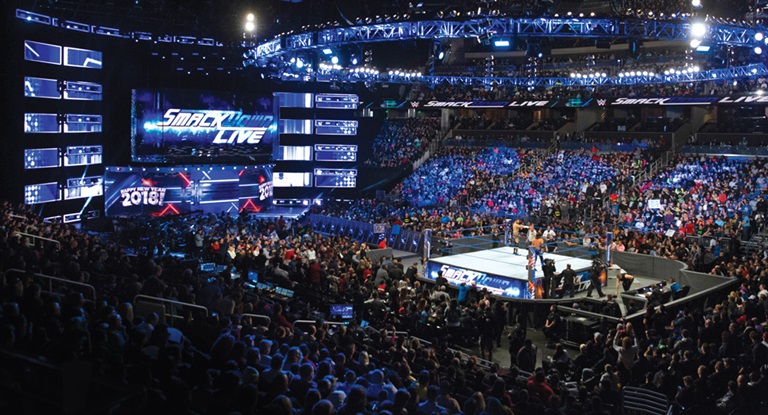Sports Business Daily has a new article up discussing why the WWE ultimately decided against signing with ESPN, why the WWE split up RAW and Smackdown Live in the contract negotiations, UFC’s television impact and more.
The article includes a lot of information that is already public, but also includes some new information that was not previously made publicly available, including interest in the WWE from unlikely sources to carry the company’s programming.
Why WWE split up RAW and Smackdown Live in contract negotiations:
WWE had been making an average of $130 million per year for both in its previous deal, a figure that network executives considered well below market value, especially considering WWE’s consistently high ratings and passionate fan base.
Historically, WWE’s rights fees had been depressed as ad buyers shied away from the series. In the current media environment prioritizing live sports, however, advertisers now covet WWE’s large and engaged fan base.
NBC also had a clause in its contract where WWE had to give the company a take-it-or-leave-it offer before its exclusive negotiating window ended.
But WWE executives knew they were negotiating from a position of strength, and decided to split its package in two. CAA told Hammer that it wanted $265 million per year for “Raw” and $200 million per year for “SmackDown,” a massive 358 percent increase.
As the WWE’s exclusive window ended on May 16, NBC said it would take “Raw” for $265 million, leaving “SmackDown” available for others to poach.
Why WWE declined an offer from ESPN:
ESPN had gravitated closer to the WWE over the previous year, and was receptive. It soon became clear, however, that a deal was not in the offing. The problem came down to scheduling. WWE’s “Raw” and “SmackDown” are produced 52 weeks a year. With the rights deals it already has, ESPN cannot afford to give any sport 52 weeks in a year.
ESPN made an offer to WWE that would have included its content on their new ESPN+ streaming service, but that was declined by the WWE being it is perceived as competition to the WWE Network.
The UFC, as apart of it’s new deal with ESPN, will provide content for ESPN+. Unlike MLS, which closed it’s video streaming service in favor of ESPN+, the UFC will retain the UFC Fight Pass for their video library.
The article also includes an interesting note that Time Warner was interested in a deal with the WWE as well, but was unable to make an offer due to the then uncertainty of if the merger with AT&T would take place.
Time Warner would later merge with AT&T to become WarnerMedia, after the WWE had already re-signed with NBCUniversal and signed a new deal with Fox Sports for Smackdown Live to begin airing on the flagship broadcast network in 2019.



